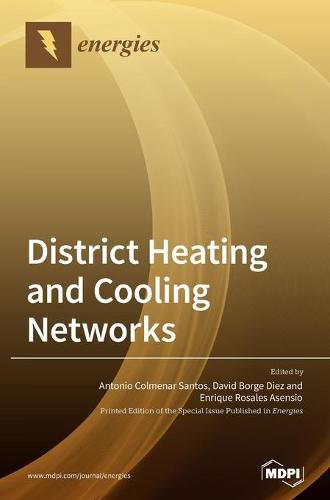Readings Newsletter
Become a Readings Member to make your shopping experience even easier.
Sign in or sign up for free!
You’re not far away from qualifying for FREE standard shipping within Australia
You’ve qualified for FREE standard shipping within Australia
The cart is loading…






This title is printed to order. This book may have been self-published. If so, we cannot guarantee the quality of the content. In the main most books will have gone through the editing process however some may not. We therefore suggest that you be aware of this before ordering this book. If in doubt check either the author or publisher’s details as we are unable to accept any returns unless they are faulty. Please contact us if you have any questions.
Conventional thermal power generating plants reject a large amount of energy every year. If this rejected heat were to be used through district heating networks, given prior energy valorisation, there would be a noticeable decrease in the amount of fossil fuels imported for heating. As a consequence, benefits would be experienced in the form of an increase in energy efficiency, an improvement in energy security, and a minimisation of emitted greenhouse gases. Given that heat demand is not expected to decrease significantly in the medium term, district heating networks show the greatest potential for the development of cogeneration. Due to their cost competitiveness, flexibility in terms of the ability to use renewable energy resources (such as geothermal or solar thermal) and fossil fuels (more specifically the residual heat from combustion), and the fact that, in some cases, losses to a country/region’s energy balance can be easily integrated into district heating networks (which would not be the case in a fully electric future), district heating (and cooling) networks and cogeneration could become a key element for a future with greater energy security, while being more sustainable, if appropriate measures were implemented. This book therefore seeks to propose an energy strategy for a number of cities/regions/countries by proposing appropriate measures supported by detailed case studies.
$9.00 standard shipping within Australia
FREE standard shipping within Australia for orders over $100.00
Express & International shipping calculated at checkout
This title is printed to order. This book may have been self-published. If so, we cannot guarantee the quality of the content. In the main most books will have gone through the editing process however some may not. We therefore suggest that you be aware of this before ordering this book. If in doubt check either the author or publisher’s details as we are unable to accept any returns unless they are faulty. Please contact us if you have any questions.
Conventional thermal power generating plants reject a large amount of energy every year. If this rejected heat were to be used through district heating networks, given prior energy valorisation, there would be a noticeable decrease in the amount of fossil fuels imported for heating. As a consequence, benefits would be experienced in the form of an increase in energy efficiency, an improvement in energy security, and a minimisation of emitted greenhouse gases. Given that heat demand is not expected to decrease significantly in the medium term, district heating networks show the greatest potential for the development of cogeneration. Due to their cost competitiveness, flexibility in terms of the ability to use renewable energy resources (such as geothermal or solar thermal) and fossil fuels (more specifically the residual heat from combustion), and the fact that, in some cases, losses to a country/region’s energy balance can be easily integrated into district heating networks (which would not be the case in a fully electric future), district heating (and cooling) networks and cogeneration could become a key element for a future with greater energy security, while being more sustainable, if appropriate measures were implemented. This book therefore seeks to propose an energy strategy for a number of cities/regions/countries by proposing appropriate measures supported by detailed case studies.